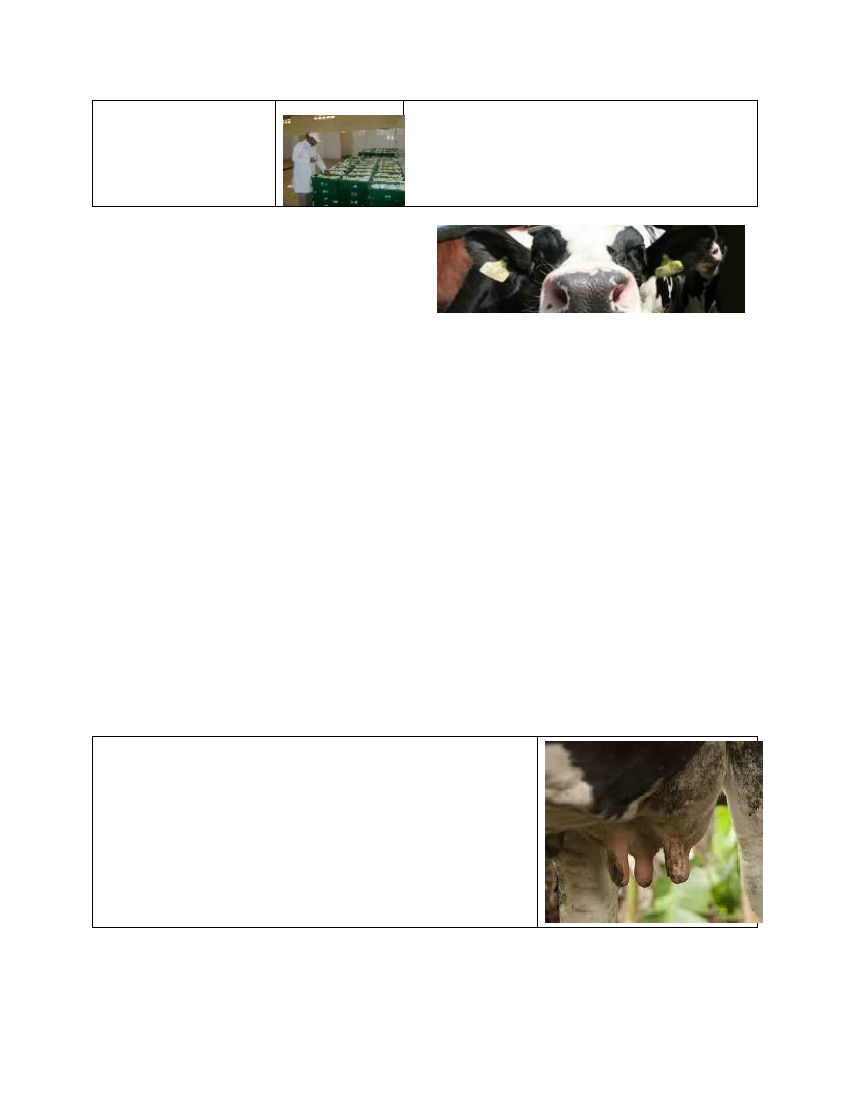
Reflections on KDSCP
COMPONENT 2
'We can estimate impact at the service provider level via sales
and the supposed increase of turnover. We don't measure
sales, turnover or revenue but pick key services (such as feed
and AI) and measure sales of, payment for and satisfaction with
these selected services'.
Mary Munene, Dairy Value Chain Development Coordinator
COMPONENT 2
Dairy Smallholder Business Organization (SBO)
Development
These activities build the capacity of smallholder business
organizations and improve farm-level productivity.
The programs approach involves supporting small business organizations (SBOs) to address the needs of the sector such as low production,
erratic supply and price fluctuations. This has involved mapping the key processors, establishing and rehabilitating bulking centers and
building the capacity of farmers to understand contracting issues.
Firstly KDSCP undertook a diagnostic analysis to understand the demand for services able to address farmers' key problems. This led to a
range of activities such as facilitating the strengthening of farmer organizations via restricted growth, systems development for record
keeping and the transfer of relevant technologies such as digital weighing scales to address issues of transparency.
In some instances the facilitator became a member of the cooperative management committee to drive understanding and commitment
and empower the committee to perform its functions. This also involved implementing actions such as opportunity seminars to attract the
youth into the management of member based organizations. KDSCP promoted other mechanisms for participation such as open forums to
address issues of apathy among members and develop their ability to understand and better perform their roles.
To date the program is building capacity of 124 cooperatives with 56 now running profitable businesses. These SBOs pay their farmers on
time, have taken up new management practices, have grown membership and included more youth and women in management (reaching
27.9% against a target of 30% to date), with some coops also now packaging their own milk. Importantly SBOs are now making investments
and the milk sheds have seen the revival/installation of 45 coolers to date.
The program has also built the SBOs capacity to advocate. To date the program has reached 124 coops and close to 265,000 farmers, helping
them to lobby for better prices and increasing milk values from 18Kshs per liter to 34Kshs. Furthermore the program has ensured that
farmers know the leaders in other milk sheds and share relevant information such as market prices.
KDSCP has also undertaken and disseminated consumer research to all parties to ensure greater transparency. Empowering SBOs to
negotiate with processors allows them greater influence and reduced risk.
The facilitators were tasked with forging linkages for capacity building support for SBOs (guided by an agreed MOU) such as to establish
market linkages or undertake leadership training. In a bid to increase access for farmers to BDS the program assisted SBOs to identify and
offer embedded services to members. The facilitators also worked with existing providers to build their technical skills, develop new services
for SBO members, and develop business plans and access funds.
In particular, providers often need assistance with developing appropriate service products
for new types of customers, designing workable payment mechanisms, and promoting their
services to new customers. Where no service providers existed the facilitator worked with
stakeholders to promote the business opportunity.
Importantly the program developed linkages between finance institutions and value chain
actors. A value chain financing study was undertaken to determine financing opportunities.
Financing institutions were facilitated to better understand the needs of small dairy
enterprises and to develop products to increase access to finance for farmers and service
providers such as agrovets and animal health workers. Funds were marketed to the sector
via program forums. KDSCP (via MOUs with MFIs) has been able to track loan disbursements
to farmers and other service providers such as SBOs.
39